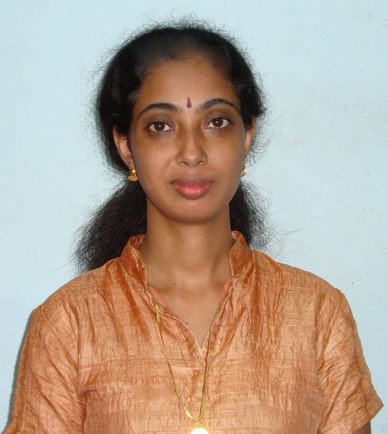Profile
The primary aim of my lab is to decipher the signaling pathways initiated in tumor microenvironment for the induction and maintenance of self-renewal ability in cancer stem cells. In parallel, we exploit the use of peptides in cancer biology. Recently we identified a host defense peptide that induces apoptosis in cancer cells. Understanding the molecular mechanism of this process revealed the possible exploitation of the immunomodulatory pathways by host defense peptides in inducing cell death in cancer cells. This property offers a therapeutic potential to this peptide in cancer, specifically for cancer types that are resistant to conventional therapies.
Current Focus Areas
Our lab is interested in identifying the important signaling pathways regulating self-renewal ability of oral cancer cells. Our focus is on an E3 ubiquitin ligase, TIF1γ, which interacts with specific histone variants and histone acetylases to modulate the chromatin marks that favour transcription of self-renewal genes.
We have identified that that EphA2/EphrinB1 signaling is critically regulating the self-renewal ability of oral cancer stem cells (CSCs), and depletion of the pathway drastically reduce the CSC pool, leading to better survival in mouse models. We are exploring how this signaling pathway operates
We identified a peptide, SSTP1 from frog skin secretion, which kills cancer cells over-expressing IL6Rα. This peptide is superior to other IL6 inhibitors, as it adopts a unique mechanism for apoptosis. We are developing this to a drug for cancers over-expressing IL6Rα, like triple negative breast cancer.
Selected Publications
Maliekal, T. T., Dharmapal, D., and Sengupta, S. (2022) Tubulin Isotypes: Emerging Roles in Defining Cancer Stem Cell Niche. Frontiers in Immunology, 2648
Gopalakrishnan, S., et al. (2021)SSTP1, a Host Defense Peptide, Exploits the Immunomodulatory IL6 Pathway to Induce Apoptosis in Cancer Cells. Frontiers in immunology.12
Bajaj, J*., Maliekal, T. T*., Vivien, E., Pattabiraman, C., Srivastava, S., Krishnamurthy, H., Giri, V., Subramanyam, D., and Krishna, S. (2011) Notch signaling in CD66+ cells drives the progression of human cervical cancers. Cancer Res 71, 4888-4897 (Equal contribution)
Maliekal, T. T., Anto, R. J., and Karunagaran, D. (2004) Differential activation of Smads in HeLa and SiHa cells that differ in their response to transforming growth factor-beta. J Biol Chem 279, 36287-36292
Maliekal, T. T., Antony, M. L., Nair, A., Paulmurugan, R., and Karunagaran, D. (2003) Loss of expression, and mutations of Smad 2 and Smad 4 in human cervical cancer. Oncogene 22, 4889-4897
